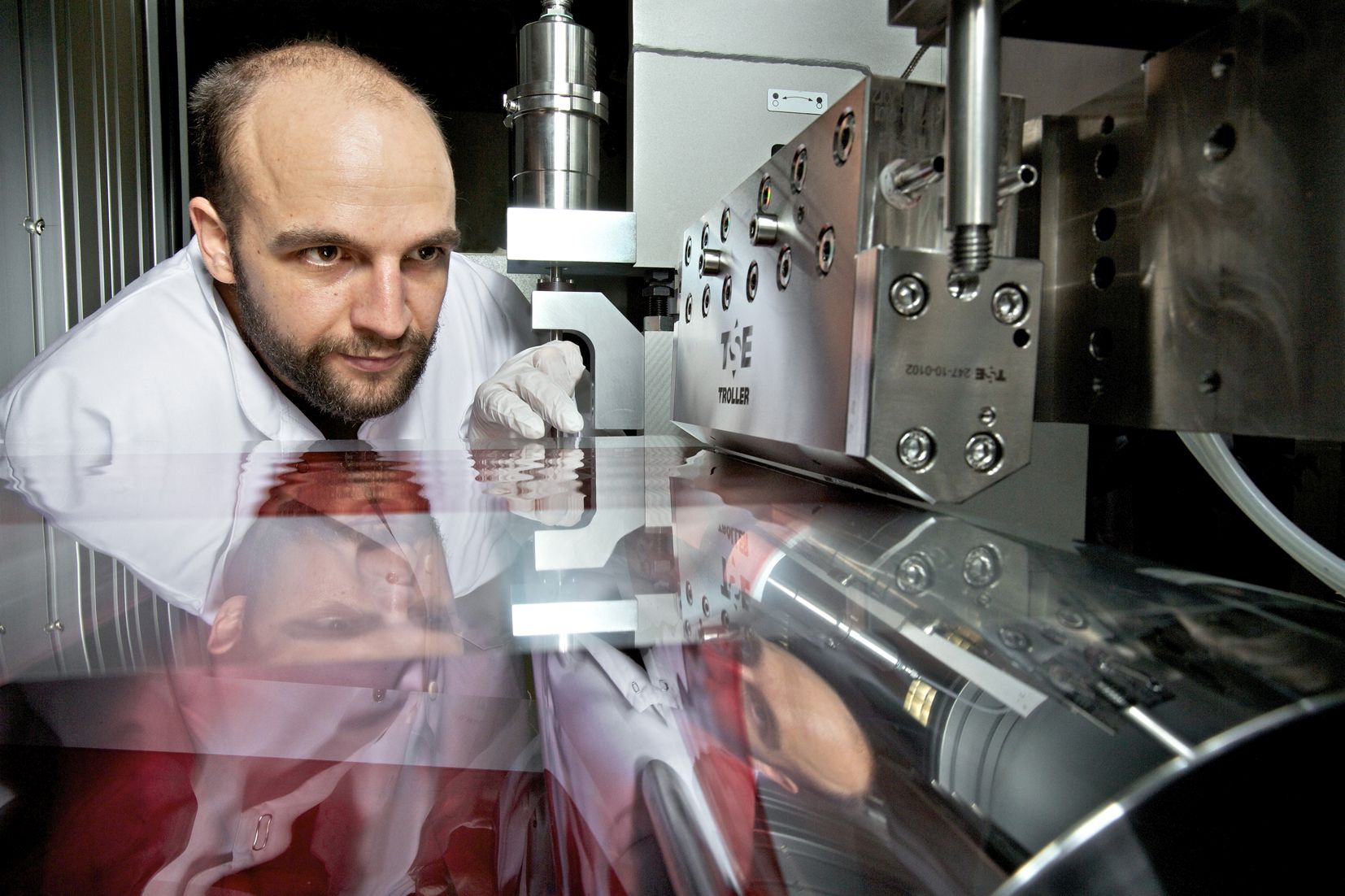Press Release #11
Organic PV Modules Pass Stress Test – Fraunhofer ISE presents its flexible, large-area PV module at the LOPEC conference
A completely flexible solar PV module of circa 90 square centimeters is the centerpiece of Fraunhofer ISE’s booth at the upcoming LOPEC – the International Exhibition and Conference for Printed Electronics. Because this PV module is produced without indium-tin-oxide (ITO), an expensive compound normally used in organic photovoltaics, it also saves costs. A barrier layer in the module serves as a durable encapsulation, and the module-integrated solar cells have successfully passed the accelerated humidity-temperature test for thin-film photovoltaics. The LOPEC takes place from 26-28 May in Munich.

Using roll-to-roll manufacturing, the Freiburg researchers are working on a process to cost-effectively fabricate large area foils of organic photovoltaic solar cells. All of the layers, except the metal electrodes, are manufactured on the machine at Fraunhofer ISE. Depositing the silver grid lines for the front side contacts is carried out by a screen printing process, in cooperation with and in the technical laboratory of the industry partner Thieme. The module is sealed with a special barrier foil, allowing it to be completely flexible.
“We have carried out several tests on our organic solar cells under continuous radiation. The successful results evidence long-term stability of eight or more years,” reports Dr. Uli Würfel, department head of Dye and Organic Solar Cells at Fraunhofer ISE. “The promising results are an important step towards product maturity for this solar cell technology that, due to its featured flexibility, can open up entirely new areas of solar electricity applications.”
In the temperature-humidity test performed in the lab at Fraunhofer ISE, solar cells or also modules are exposed to a temperature of 85°C and relative humidity of 85% for a duration of 1000 hours. Upon completion of these accelerated aging tests, the flexible organic solar cells from Fraunhofer ISE’s laboratory showed an efficiency loss of less than five percent.
Fraunhofer ISE’s booth at the LOPEC can be found in Hall B0 108. More information about the conference, which takes place on 27-28 May in Munich, Germany is available at: www.lopec.com. (Conference begins already on 26 May)
Last modified: